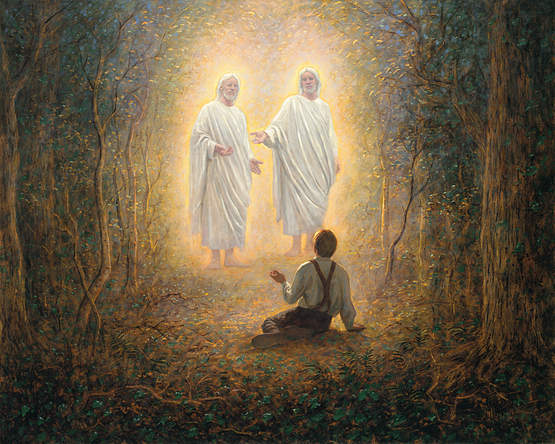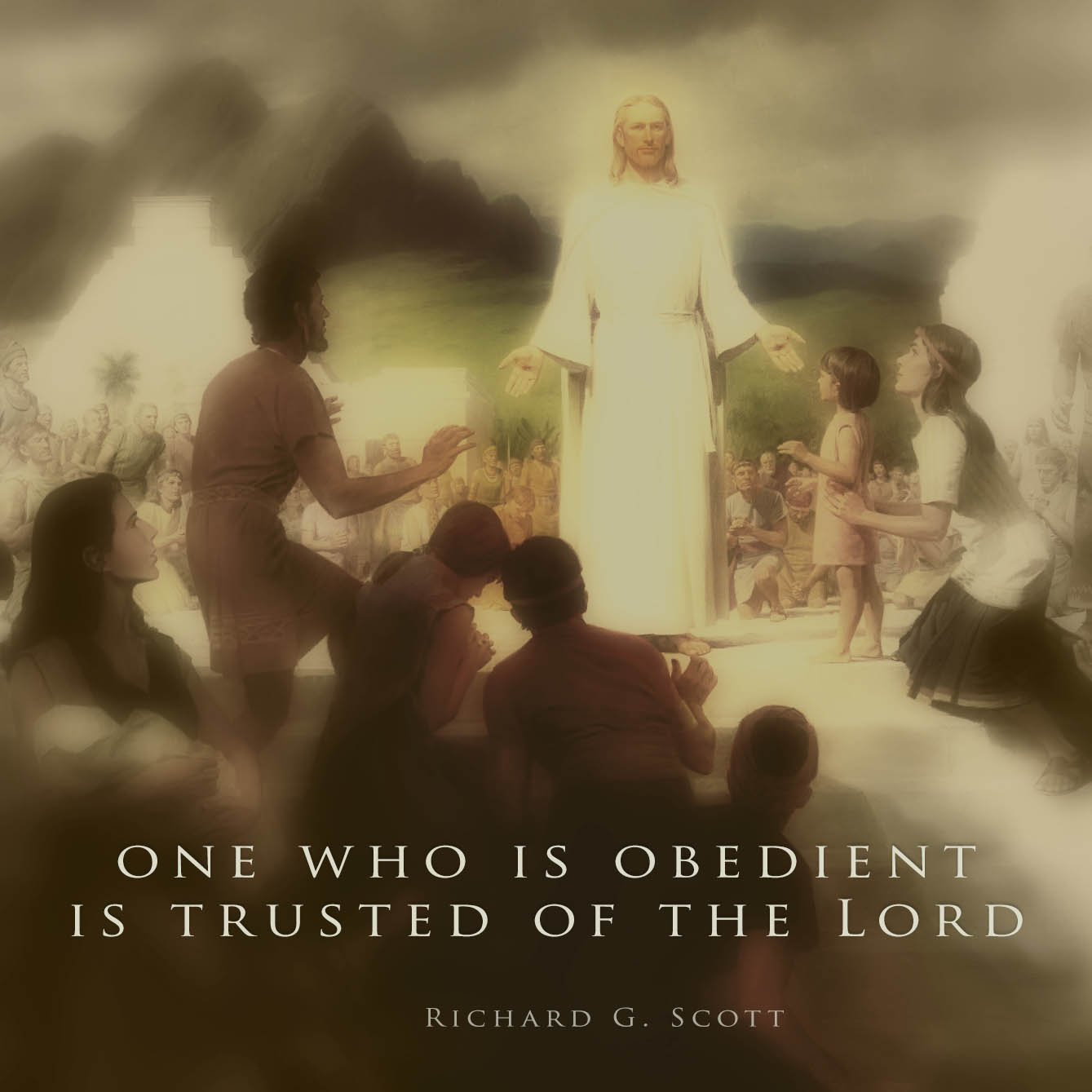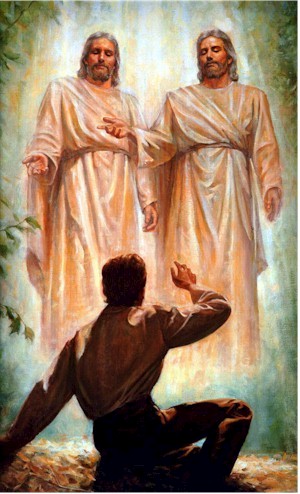What is a Mormon? In answering that question, there are many ideologies based on what people know about Mormons, or what they think they know about Mormons. A basic dictionary definition of “Mormon” is a member of The Church of Jesus Christ of Latter-day Saints, a religion that was founded in 1830 by a man by the name of Joseph Smith, Jr.
 There are some who have a basic understanding of what a Mormon, or Latter-day Saint (the proper name used for a member of The Church of Jesus Christ of Latter-day Saints) is, but even with that limited understanding there exists many myths that seem to overshadow the realities. Unfortunately, it is often the myths that people use, especially the news media, to formulate their opinions about this “peculiar” people known as Mormons. A prime example of this is the amount of errors that are found in media sources about the Church of Jesus Christ, its members, and what they believe, as the news media takes a keen interest in Mitt Romney, the Republican candidate for President of the United States, who also just happens to be a Mormon.
There are some who have a basic understanding of what a Mormon, or Latter-day Saint (the proper name used for a member of The Church of Jesus Christ of Latter-day Saints) is, but even with that limited understanding there exists many myths that seem to overshadow the realities. Unfortunately, it is often the myths that people use, especially the news media, to formulate their opinions about this “peculiar” people known as Mormons. A prime example of this is the amount of errors that are found in media sources about the Church of Jesus Christ, its members, and what they believe, as the news media takes a keen interest in Mitt Romney, the Republican candidate for President of the United States, who also just happens to be a Mormon.
With the fact that Romney could very well become the first Mormon President of the United States, it seems that it would prove more fruitful for the press to seek after the truth about Mormons and Mormonism to help dispel the myths, and to give the populace a better understanding of what the LDS Church actually believes and teaches. Perhaps the best way to accomplish this is by going directly to the source, that is, talking to actual Latter-day Saints and getting the facts first hand.
Basic Mormon Beliefs
Perhaps beginning with a reason as to why Latter-day Saints are commonly referred to as Mormons will help clarify a few of the myths that exist. The name “Mormon” is derived from the fact that in addition to the Holy Bible, which Latter-day saints revere as sacred scripture, they also use another volume of scripture known as The Book of Mormon which they believe and testify is Another Testament of Jesus Christ.
 Mormons further testify that the book was translated from an ancient record. That translation was performed by Joseph Smith, who was chosen to be the instrument in the Lord’s hands to bring about the fulness of the everlasting gospel in these the latter days. Of Joseph Smith, Latter-day Saints testify that he was indeed a prophet of God. At the young age of 14 years, after reading the verse in the Bible found in James 1:5, he decided to seek an answer to all of the religious confusion of the day. As he knelt in a grove of trees not far from his home, he was visited by God the Father and His Son Jesus Christ. He was instructed to join none of the churches, and was also given other instructions. This is known as Joseph Smith’s First Vision.
Mormons further testify that the book was translated from an ancient record. That translation was performed by Joseph Smith, who was chosen to be the instrument in the Lord’s hands to bring about the fulness of the everlasting gospel in these the latter days. Of Joseph Smith, Latter-day Saints testify that he was indeed a prophet of God. At the young age of 14 years, after reading the verse in the Bible found in James 1:5, he decided to seek an answer to all of the religious confusion of the day. As he knelt in a grove of trees not far from his home, he was visited by God the Father and His Son Jesus Christ. He was instructed to join none of the churches, and was also given other instructions. This is known as Joseph Smith’s First Vision.
Concerning the Book of Mormon, Mormons believe that the book does not in any way attempt to detract from the Bible, but rather it enhances those teachings of the Lord Jesus Christ that are taught in the Bible and enlightens their understanding of gospel truths. Mormons testify that both the Book of Mormon and the Holy Bible are the Word of God, and that both volumes of sacred writ testify of the Savior, the Lord Jesus Christ, and the tremendous love that He has for all of His children. As part of their religious studies, Mormons also use two other volumes of scripture known as the Doctrine and Covenants (which contains revelations given from the Lord to Joseph Smith concerning various matters in helping him to govern the Church of Jesus Christ), and the Pearl of Great Price.
One of the main reasons that many people feel that Latter-day Saints are not Christian is because of the use of these other scriptures, and in particular, the Book of Mormon, which most are familiar with. Many believe and feel that because Mormons do not use the Bible solely as their source of Christ’s teachings, then they do not teach and preach the same Christ as mainstream christianity. However, if a person takes careful note, he will see that even the very name of the church, The Church of Jesus Christ of Latter-day Saints, bears the name of the Savior and is a testimony to the world of whom Latter-day Saints honor, revere, adore, and worship.
Another issue of Mormon doctrine that mainstream christianity disagrees with is that Mormons do not believe in or teach the trinitarian concept of the Godhead. Mormons do, however, believe in God the Father, His Son Jesus Christ, and in the Holy Ghost. They believe that these three members of the Godhead are separate and distinct personages who are one, but one in purpose and mission. Mormons further believe that the Father and the Son have glorified bodies of flesh and bone, but the Holy Spirit does not have a body of flesh and bone.
Mormons also believe that God has living prophets on the earth today who are the mouthpiece of God to lead, instruct, and direct His people in the way that they should go, just as prophets of old were called to do. The present prophet is Thomas S. Monson, the President of The LDS Church. In addition, Mormons believe that the heavens are still open, and that God still speaks to His people today, just as He always has.
Latter-day Saints strive to live their lives according to the doctrines and precepts of the gospel with an “eye single to the glory of God.” They are not perfect, but they are striving to become perfect, even as the Father in Heaven is perfect. They know that as they are faithful and obedient, and endure to the end, that one day they will return to the loving arms of the loving Father who awaits to welcome them home, and hear Him say, “Well done, thou good and faithful servant.”
The Mormon Lifestyle
Who are the Mormons? They are really no different than any other people who live in any given neighborhood. They raise their families based on gospel principles, and so their standards of living are a little higher than some others. They don’t smoke, drink alcohol, or indulge in drugs. They strive to live chaste, pure lives, abstaining from things such as premarital sexual relationships. In fact, they do not date until the age of 16. They work in vocations similar to other people, and are influential in the communities in whicch they live. They attend schools and universities the same as other students, and attend worship services on Sunday.
If a person would take the time to get to know who Mormons really are, and what they truly believe, he or she may discover that they are not so “peculiar” after all.




